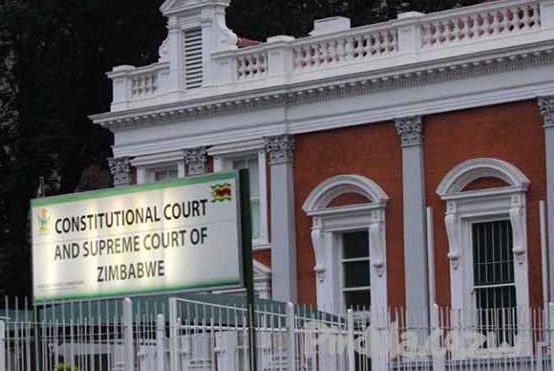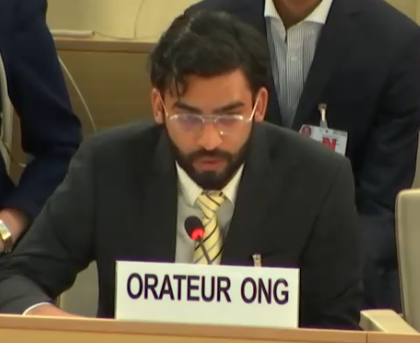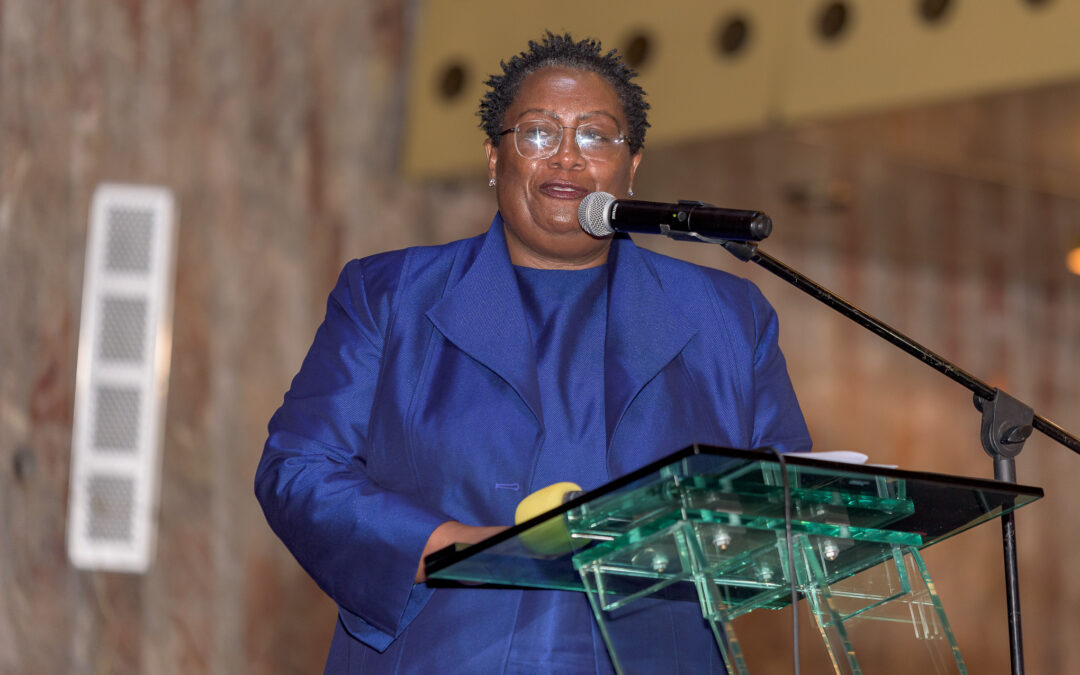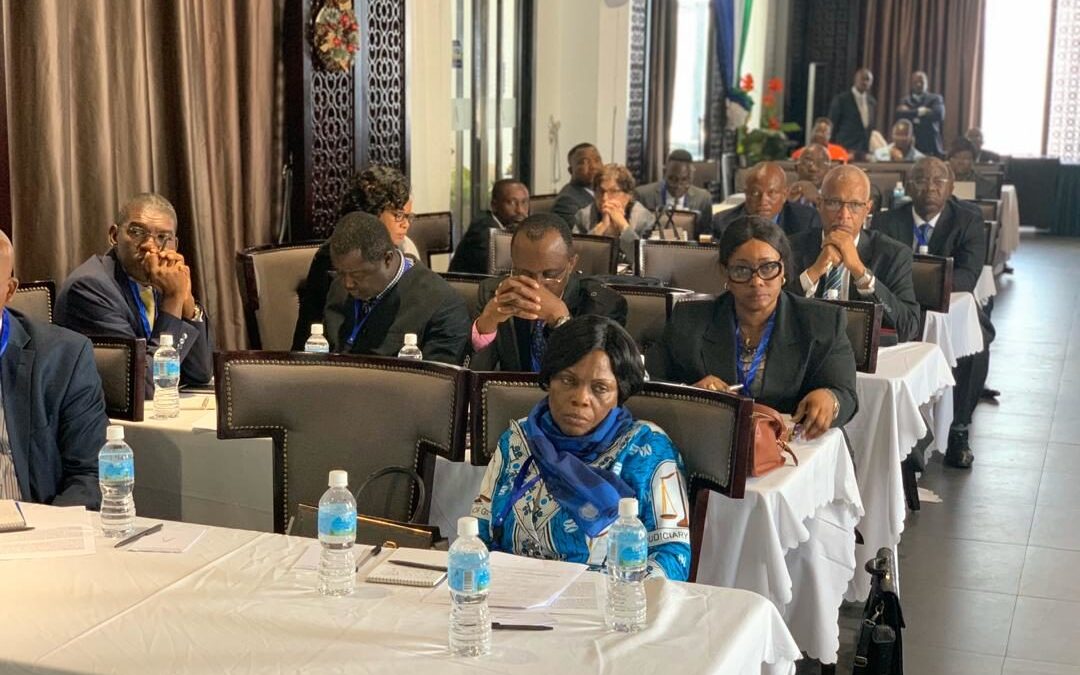
Apr 2, 2020 | News
The ICJ welcomes the decision by the Constitutional Court of Zimbabwe to invalidate the enactment of Constitutional Amendment Bill (No. 1) of 2017 in Gonese and Anor v Parliament of Zimbabwe and 4 Ors. The judgment restores important Constitutional guarantees for the independence of the judiciary in Zimbabwe.
Zimbabwe adopted a new Constitution in 2013 and one of the progressive elements of this Constitution was its provisions regulating the appointment of judicial leaders such as the Chief Justice, Deputy Chief Justice and Judge President of the High Court. These judicial leaders perform important administrative functions with a huge impact on access to justice for the public.
For example, the Chief Justice is the head of the Judicial Service Commission (JSC) and therefore, presides over processes to select and recommend candidates for judicial appointment.
The Judge President is responsible for case allocation in the High Court and therefore, selects judges to sit on cases. It is important that the procedures for appointing these judicial leaders be transparent and independent of executive control in order to maintain the independence and impartiality of judges as well as promote public confidence in the judiciary.
The 2013 Constitution ensured this by prescribing procedures which accorded the executive a constrained role in the selection and appointment of these judicial leaders.
For example, the process of selecting these office bearers was to be led by an independent Judicial Service Commission (JSC) which would publicly advertise the vacancies, shortlist candidates, conduct interviews that are open to the public and recommend candidates for appointment by the President. The President was required to appoint only from the shortlist submitted by the JSC.
In 2017, the then-President of Zimbabwe Robert Mugabe signed into law a constitutional amendment bill which sought to change these provisions and give the President the authority to select and appoint these judicial leaders without conducting public interviews and without being constrained or restricted to the shortlist provided by the JSC.
The enactment of this constitutional amendment bill was challenged in the Constitutional Court on grounds that the amendment had been adopted and enacted into law without following due process.
In its judgment, the Constitutional Court concluded that, “It is declared that the passing of Constitutional Amendment Bill (No. 1) of 2017 by the Senate on 01 August 2017 was inconsistent with the provisions of s 328(5) of the Constitution, to the extent that the affirmative votes did not reach the minimum threshold of two-thirds of the membership of the House. Constitutional Amendment Bill (No. 1) of 2017 is declared invalid to the extent of the inconsistency. The declaration of invalidity shall have effect from the date of this order but is suspended for a period of one hundred and eighty days, subject to the provisions of paragraph 1(b).”
The Court directed the Senate to conduct a vote in accordance with the procedure for amending the Constitution prescribed by s 328(5) of the Constitution within one hundred and eighty days of the order given. Failure to do so will render the declaration of invalidity of Constitutional Amendment Bill (No. 1) of 2017 final, said the Court.
Commenting on this judgment, ICJ Africa Director Arnold Tsunga said: “This is a positive judgment which underscores the vital principle of legality, particularly that changes to the Constitution must be processed and enacted in strict accordance with the laid out procedures. Respect for the Constitution, and ensuring the independence of the judiciary, are fundamental elements of the rule of law; both are advanced by this judgment.”
The decision by the Constitutional Court comes at a time when the Parliament of Zimbabwe has gazetted further proposed changes to the Constitution, which amongst other things seek to give the executive a stronger role in the selection and appointment of judges to the Supreme Court and Constitutional Court.
These proposed changes would undermine judicial independence and undercut public confidence in the independence and impartiality of the judiciary. Further, these proposed changes are contrary to international and African standards. For instance, the United Nations Basic Principles on the Independence of the Judiciary enjoin member states to ensure that “Any method of judicial selection shall safeguard against judicial appointments for improper motives.”
The African Commission on Human and Peoples’ Rights’ Principles and Guidelines on the Right to a Fair Trial and Legal Assistance in Africa further provide that, “The process for appointments to judicial bodies shall be transparent and accountable and the establishment of an independent body for this purpose is encouraged.” The ICJ therefore, calls upon the government of Zimbabwe to reconsider its decision to proceed with these proposed changes to the Constitution.
Contact
Arnold Tsunga, t: +26377728 3248; e: arnold.tsunga@icj.org

Mar 6, 2020 | Advocacy, Non-legal submissions
The ICJ, speaking in a general debate at the UN Human Rights Council in Geneva, urged all States to work together towards adoption of a treaty on business and human rights, and highlighted threats to the independence of the judiciary in Europe.
The statement, delivered in the general thematic debate at the Council, read as follows:
“The International Commission of Jurists (ICJ) welcomes the report of the 5th session of the Intergovernmental Working Group (A/HRC/43/55) in charge of the elaboration of a treaty on business and human rights and notes the consensual nature of its conclusions and recommendations. Abuses of human rights and environmental degradation caused with the involvement of business enterprises have so far been met with very limited action by businesses and States.
The ICJ considers that the revised draft treaty is a serious and advanced proposal that is suitable for negotiations and thanks the Chair-Rapporteur for its efforts and leadership in this process.
The ICJ urges States that are not yet actively involved in the negotiations to join the growing number of States that are active for a final push.
The ICJ also draws the attention of the Council to serious threats to independence of judges and lawyers in European countries.
In Poland, judges are being disciplined merely for applying EU law, under legislation curtailing their freedom of expression and independence.
In Turkey, independence of lawyers and judges continues to be seriously compromised, as demonstrated by the disciplinary proceedings against the Gezi trial judges launched after critical comments by the President of Turkey.
The ICJ urges the Council to give attention to these developments of extreme concern.”

Jan 30, 2020 | News
The ICJ, in collaboration with the Zimbabwe Judicial Service Commission (JSC), convened an Anti-Corruption workshop from 27-30 January 2020.
The objective was to enhance the capacity of judicial and law enforcement officials and prosecutors in respect of their roles in anti-corruption prevention and enforcement and cyber-crime investigation.
The workshop was led by Hon. Justice Lawrence Gidudu, the Head of the Anti-Corruption Division of the High Court in Uganda, who was assisted by Moses Modoi a lawyer specializing in research and capacity building that supports anti-corruption courts.
In his keynote address, Hon. Mr Justice L. Malaba Chief Justice underlined that participation by key justice actors showed commitment towards the fight against corruption.
He noted that the education and training aspects aimed to create a common understanding of standards and techniques to be applied when handling corruption matters.
He expressed the sentiment that there were lessons to be learned from the Ugandan Court which currently has had a high success rate in corruption cases.
The training workshop is part of the ICJ’s wider efforts to ensure access to justice for all in Zimbabwe and elsewhere.
The main focus here was on the global outlook and emergency of anti-corruption action; analysis of municipal Anti-Corruption legislation; managing trials in anti-corruption courts, corruption as a transnational crime, admissibility of digital evidence; asset recovery and ethics and integrity.
There were 49 participants in the portions of the workshops from 27-28 January, including 18 women, comprising Judges from the Zimbabwe High Court; Regional, Provincial and Senior Magistrates; and Registrars from the Superior Courts.
Photo: Justice Loice Matanda-Moyo, Chairperson for the Zimbabwe Anti-Corruption Commission Justice Loice Matanda-Moyo

Dec 15, 2019 | Advocacy, Non-legal submissions
The ICJ has urged the UN Special Rapporteur on Independence of Judges and Lawyers to ensure that his upcoming report on challenges to the independence of prosecutors, fully addresses abuse of prosecution powers to target human rights defenders, political opponents or others, or giving rise to a more general and systemic lack of fair trial for accused persons, or entrenching impunity of State perpetrators of human rights violations, as among the dominant contemporary challenges to prosecutorial independence globally from a human rights perspective.
The Special Rapporteur has made clear his intention to address challenges to prosecutorial independence arising from transnational corruption and organized crime. While the ICJ certainly agrees that such interference can and does have impacts on human rights, to varying extents around the world, the ICJ submission also highlights and documents that threats to prosecutorial independence emanating from the prosecutor’s own Executive government should be seen to be of at least equal concern from a human rights perspective, globally, and should be fully addressed in any report on “contemporary challenges of prosecutorial independence” from a human rights perspective.
The ICJ’s submission can be downloaded in PDF format here: UN-Advocacy-SRIJLProsecutors-2019

Dec 1, 2019 | News
The ICJ, in collaboration with the Judicial Training Institute of Sierra Leone and the Judiciary of Sierra Leone, hosted a judicial dialogue for effective implementation of global, regional and sub-regional human rights standards.
The event brought together over 40 judges representing the High Courts, Courts of Appeal and Supreme Courts of the Gambia, Ghana, Liberia, Nigeria, and Sierra Leone.
The President of the Republic of Sierra Leone Julius Maada Bio, addressed the opening ceremony, stressed the critical role of the judiciary and called on the judges to remain focused and independent even in the face of unwarranted criticism.
Sierra Leone’s Chief Justice Desmond Babatunde Edwards, for his part, emphasized the duty of the judiciary to ensure that the protection of internationally guaranteed human rights is not compromised.
Other speakers at the opening ceremony were Sierra Leone’s Attorney-General/Minister of Justice Ms Priscilla Schwartz, the Chairperson of the Human Rights Commission of Sierra Leone Ms Patricia Ndanema, and the President of the Sierra Leone Bar Association Mr Basita Michael.
‘‘A core objective of the ICJ is to support the protection of human rights across the globe through the promotion of respect for the rule of law,‘‘ said Arnold Tsunga, ICJ’s Africa Regional Director. Tsunga stressed that the programme was initiated based on the ICJ’s conviction that the challenge in Africa is not necessarily a lack of human rights law and standards, but the existence of a huge gap in the implementation.
“The training sessions and judicial dialogue are important to ensure that the quality of supply meets the demand for human rights protection in Africa,” he added.
Working sessions of the event were facilitated by resources persons, including ICJ Commissioners Justice Jesmina King of the African Commission on Human and Peoples’ Rights and Professor Michelo Hansungule; Dr Chidi Anslem Odinkalu of the Africa office of the Open Society Justice Institute and Madam Hannah Forster, Executive Director of the African Centre for Democracy and Human Rights Studies.
The event was enabled through support by the European Union.
Contact
Arnold Tsunga, ICJ Regional Director for Africa, t: +27 716405926 or +263 777 283 249: e: arnold.tsunga(a)icj.org
Solomon Ebobrah, Senior Legal Adviser (ARP), t: +234 803 492 7549, e: solomon.ebobrah(a)icj.org









